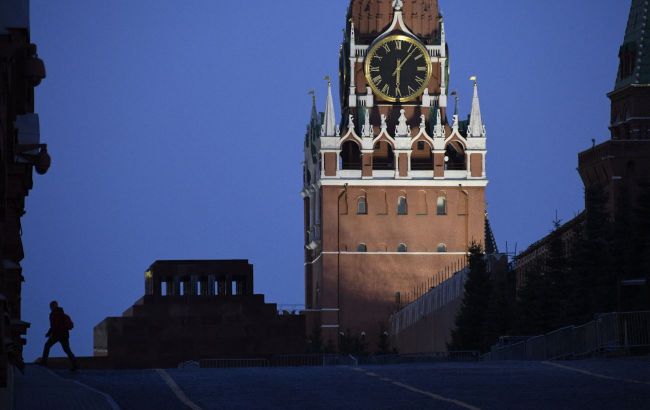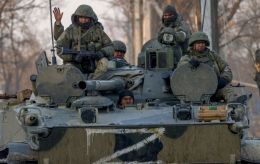Russia's economy shows more cracks under weight of war and sanctions - Bloomberg
 Photo: The Russian economy is cracking (Getty Images)
Photo: The Russian economy is cracking (Getty Images)
The Russian economy is losing resilience amid the prolonged war in Ukraine and sanctions. Key sectors are experiencing a downturn, and banks are preparing for possible government bailouts, Bloomberg reports.
As the media outlet notes, the Russian economy, which managed to stay afloat during the first years after the invasion of Ukraine, is now showing signs of weakening. It previously seemed to be overheating, but now it’s clear the cracks in the system are undeniable.
As early as November 2024, analysts had forecast that 2025 would become a year of consumer decline. Moscow is prioritizing military spending at the expense of civilian needs. One example is a ceremony involving Putin aboard a Borei-A class nuclear submarine, while car sales in June dropped by 30%.
Central bank cuts rates, economy stalls
On July 25, the Russian Central Bank cut the key interest rate by 2 percentage points, continuing its policy of monetary easing. In June, the rate had already been reduced by 1 point.
Inflation concerns are giving way to anxiety over growth. Economy Minister Maxim Reshetnikov has warned of a possible recession.
According to geopolitical analyst Alex Kokcharov of Bloomberg Economics, the Russian economy is under strain from the war, sanctions, labor shortages, weak oil prices, and high interest rates. This is undermining the resilience of several major sectors at once.
Sanctions and import substitution are failing
Despite support from China and India, Western sanctions are gradually destroying critical sectors. For instance, prior to 2022, Russia's coal industry depended on equipment from the EU, the US, and Japan. Access to that equipment is now cut off.
Chinese alternatives have proven to be low-quality and in short supply. According to Bloomberg, orders for such equipment must now be placed years in advance. Financing via European banks and bonds is also no longer available.
Trouble in metallurgy and banking sector
The steel sector, despite military orders, is in decline. This is influenced by the slump in construction and the strengthening of the ruble.
According to Severstal CEO Alexander Shevelev, domestic steel demand could fall by 10% in 2025. The strong ruble is also cutting into export revenues.
Russia's financial system is under pressure. Major banks are considering government support if the level of bad loans increases. Bloomberg reports that the actual condition of loan portfolios is worse than the official data suggests.
Government focused on war, not economy
The Central Bank claims that bank capital levels are stable, but Sberbank CEO Herman Gref has acknowledged a deterioration in loan quality. According to economist Sofia Donets, growth is only being sustained in sectors tied to military orders. All others are suffering losses.
Under economic pressure, the Kremlin is ramping up asset seizures. Over the past year, the value of confiscated property has tripled. Businesses are alarmed by the rise in nationalizations.
As Kokcharov puts it, "The Kremlin's decision-making is fully focused on the war." Putin pays no attention to the decline in coal mining, retail, or logging. His goal is to cement his legacy alongside Peter I or Catherine the Great.
As previously reported, on July 14, Donald Trump gave Putin 50 days to end military actions against Ukraine. Otherwise, the US President promised to impose tough new sanctions on Russia, which would also affect buyers of Russian oil.
US Senator Lindsey Graham said Trump intends "to put a whooping on Putin's a**" so it would be better to return to the negotiating table as soon as possible. Graham also stated that the US will crush the economies of China, India, and Brazil if those countries continue to buy cheap Russian oil.

